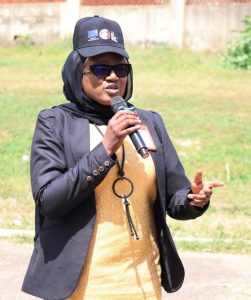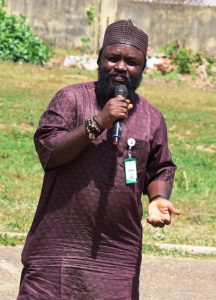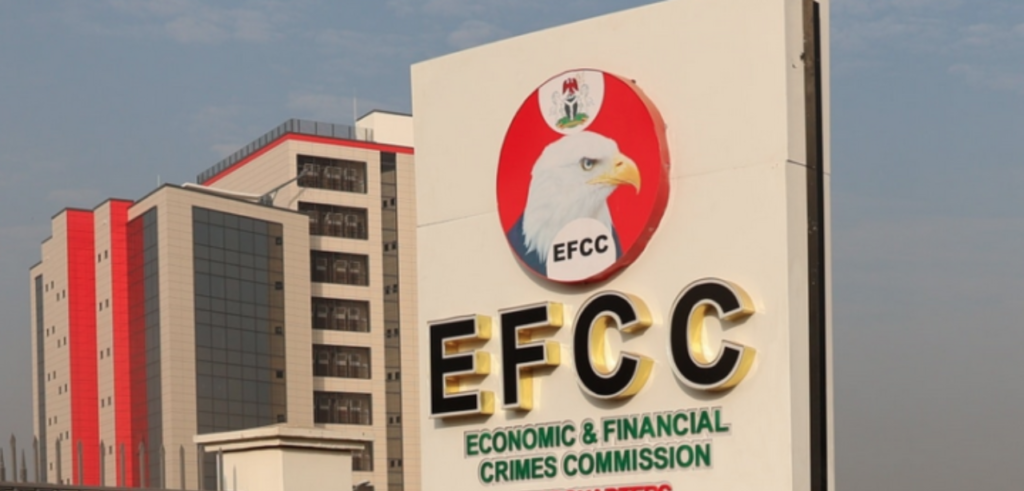By Yunusa Umar
Ola Olukoyede, the executive chairman of Economic and Financial Crimes Commission, EFCC charged Nigerian youths to be drivers of positive change not internet fraud. Olukoyede made the call during his advocacy “You Against Crime Festival,” and visits to six area councils of the Federal Capital Territory namely: Abaji, Kwali, Gwagwalada, Kuje, Bwari, and AMAC, from Monday, November 3 to Monday, November 10, 2025.
Speaking through the Head of Enlightenment and Reorientation, Assistant Commander of the EFCC, ACE II Aisha Muhammed, the EFCC boss highlighted the need for young people to cultivate integrity and discipline, describing them as the nation’s most valuable asset.

He disclosed that EFCC’s youth-based initiatives were driven by the Commission’s desire to promote awareness on the dangers of cybercrime and corruption among young people and part of broader efforts at redirecting the minds of those at the impressionable age toward ethical behaviours, hard work and nation-building.
The organizer of the festival, Mr. Tayo Folorunsho, emphasized the importance of such youth-centered initiatives, noting that events like “You Against Crime Festival” are essential in moulding responsible citizens and fostering safer communities. The festival provided a platform for students across the FCT to be tutored on the virtues of integrity, discipline and civic responsibilities, aimed at building a better society and safer financial space.

Resource persons for the festival were drawn from the EFCC, National Drug Law Enforcement Agency, NDLEA and the Nigeria Police Force, NPF.
The Economic and Financial Crimes Commission (EFCC) is Nigeria’s foremost anti-corruption and financial crimes enforcement agency. It was established in 2003 during the administration of former President Olusegun Obasanjo, following mounting domestic and international concern over Nigeria’s reputation as a hub for money laundering and large-scale financial fraud.
Read Also:
EFCC declares ex-petroleum minister Sylva wanted over $14.8m fraud allegation
Oladips accuses EFCC of extorting N10m after unlawful arrest
Since its inception, the EFCC has played a central role in Nigeria’s fight against corruption. Its mandate covers a wide range of financial crimes, including money laundering, advance fee fraud, cybercrime, bank fraud, tax evasion, terrorism financing, and the diversion of public funds. Over the years, the commission has handled numerous high-profile investigations involving former governors, senior public officials, business executives, and international criminal networks. Many of these cases led to significant recoveries of stolen assets, both within Nigeria and abroad, helping to restore some public confidence in the country’s financial system.

The EFCC operates as a federal agency headed by an executive chairman appointed by the president and confirmed by the Senate. It works closely with the office of the Attorney-General, as well as with international partners such as the FBI, Interpol, and various global financial intelligence units. These partnerships have strengthened its ability to trace illicit financial flows and crack down on increasingly sophisticated criminal operations.
Despite its achievements, the commission has not been without controversy. It has frequently faced accusations of political bias, selective prosecution, and occasional disregard for due process. Critics argue that successive governments have at times used the EFCC as a tool to intimidate political opponents. Human rights groups have also raised concerns about the agency’s methods, particularly during high-profile arrests and interrogations. Still, many Nigerians regard the EFCC as one of the few institutions capable of confronting the country’s widespread corruption.



